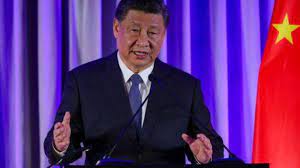
China’s domestic propaganda machinery has undergone a strategic shift in tone following President Xi Jinping’s recent talks with US President Joe Biden, pivoting from previous tensions to showcase a more optimistic narrative.
The recent summit in California marked a notable turnaround in relations between the US and China. Despite ongoing unresolved issues like US sanctions on chip exports, both nations agreed on several significant steps, including opening a presidential hotline, resuming military communications, and cooperating to curb fentanyl production.
This shift in narrative within Chinese state media highlights Xi Jinping’s efforts to be portrayed as an equal to Biden, emphasizing Xi’s intention to stabilize relations. The shift also signifies approval for engaging with American officials and businesses, positioning Xi as the leader capable of managing US-China ties.
The Chinese propaganda machinery has emphasized Xi’s willingness to foster friendship and collaboration with the US, emphasizing Xi’s past interactions with Americans, including his visits to Iowa and shared moments with Biden, such as exchanging chocolates.
While state media portrayed the summit as pivotal for the Asia-Pacific region and highlighted the positive potential of cooperation, critical voices also emerged on censored Chinese social media. Some users expressed concerns about omitted crucial issues like tariffs, chips, and tensions regarding Taiwan, revealing diverging opinions despite the orchestrated narrative.
The altered propaganda strategy reflects China’s aim to showcase a cooperative and positive image after the summit while addressing both domestic and international audiences.
Sources By Agencies


